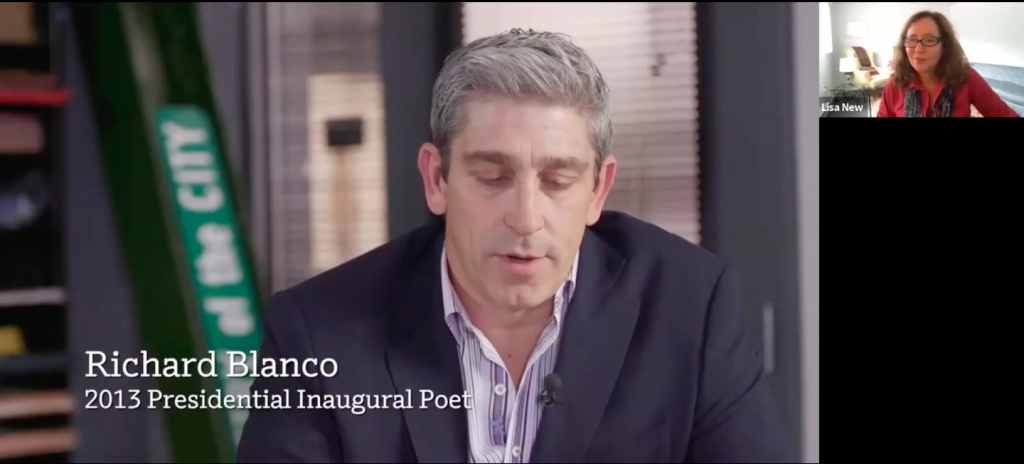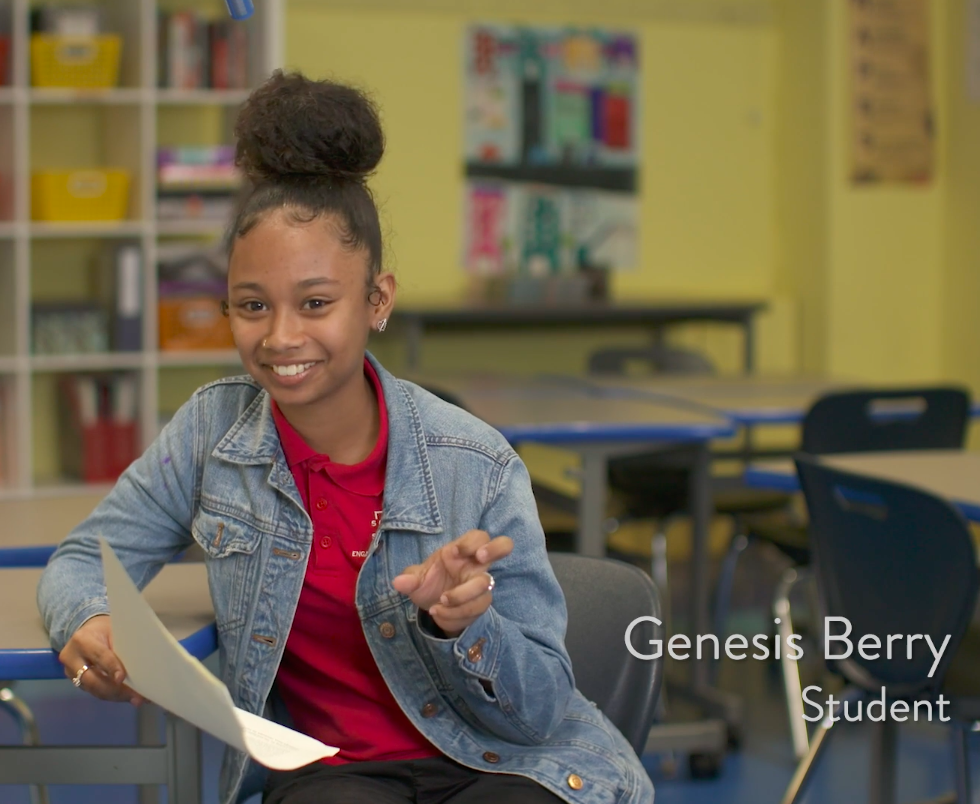Elisa New Presents at NYC Department of Education’s Beyond Access Forum
By Digital Content Writer Gideon Leek

On Thursday, June 3rd, Poetry in America Host Elisa New gave a presentation to educators at the NYC Department of Education’s Beyond Access Forum. Over 600 New York City teachers, paraprofessionals, librarians, and other education professionals tuned in to the virtual presentation, ELA for Social and Emotional Learning: Poetry and Renewal.
In the Professional Development session, which discussed the future of online and blended learning, Professor New zeroed in on the need to renew students emotionally and mentally. At the tail end of a brutal school year, the discussion provided an opportunity for emotional and personal catharsis for many teachers—many took to the chat to vent their frustration, and share their need for new tools designed to engage and interest their students.
New’s engaging presentation used a demo lesson on Richard Blanco’s poem “Looking for The Gulf Motel,” a sun-and-sand-filled poem reflecting on family vacations, and the nostalgia they inspire as we grow up. Professor New left teachers with a hand-out and other resources, including some from the poetry curriculum we created with Amplify, to bring her “Looking for The Gulf Motel” demo lesson into their classrooms.
When faced, like all educators, with the age-old problem of how to get everyone in a classroom in sync and fully present at the same time, Professor New has found that grounding the group in sensory details can lead to a positive classroom experience. “I love [Blanco’s] poem because it makes students curious about that list of vocabulary words that you sometimes drill your students through,” Professor New remarked during the presentation. “What’s imagery? What’s onomatopoeia? What’s alliteration? [The poem] uses those devices so naturally, and helps us notice them so fluidly, that you want to find the word for what this poem is doing.”

Back in their own classrooms, teachers can open their “Looking for The Gulf Motel” lesson with an interpretative icebreaker. Teachers ask their students to come up with a working definition of sensory details (without naming any of the senses while doing so). Then, in small groups, students perform a close reading of Blanco’s poem with an eye toward individual senses (e.g. the feeling of the sand in our hair, or the sound of ocean waves). Finally, in a whole class discussion, students consider Blanco’s use of sensory detail. (In the Professional Development session, one attendee misread “pork roast” as “pot roast,” and Professor New discussed the cultural transibility of the poem).
The lesson raises interesting questions that students can discuss together: why include images that use multiple senses: like the smell of the garlic, the scruff of the suitcases, the taste of the mangos? How does this affect the poem? And, most importantly, is The Gulf Motel a place that you would want to experience yourself?

